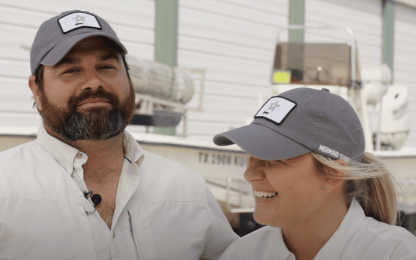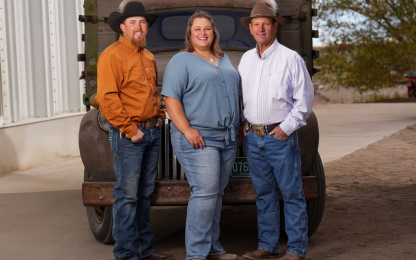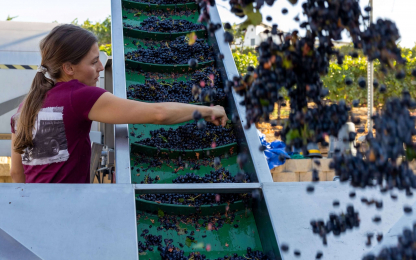With a background in conservation, Burthel Thomas has built on what he learned in his career to make his operation environmentally friendly.
A New Legacy
Burthel Thomas farms 20 acres of watermelons and 30 beehives in Wabbaskea, Arkansas. After a 41-year career with the USDA Natural Resource Conservation Service, Burthel has leveraged the skills he learned in his career by producing watermelons with sustainability in mind.
“I retired and I wanted something to do with my time, and not only that, leave a legacy to my family,” Burthel said.
Helpful Pollinators
In addition to watermelons, Burthel invested in 30 hives of bees to increase the pollination of his watermelon. Bees play a vital role in pollinating watermelons – not only for the plant to produce an abundance of fruit but to ensure they are healthy and form a good shape.
“If I don’t get the good pollination that I need, the melon will be deformed, particularly on the front end or on the back end. There’s nothing wrong with that melon, but it’s unsightly, I can’t sell it,” Burthel said.
The addition of bees to Burthel’s operation allowed him to distribute his own honey.
“I got my own label for my honey and I pass it out to folks. I have little jars and I pass it out, and the word gets around,” Burthel said.
Sustainable Practices
With a background in conservation, Burthel built on what he learned in his career to make his operation environmentally friendly.
“Every sustainable practice I could put on my farm, I’ve signed up for it. I have plastic mulch, I have drip tape, irrigation water management, neutral water management, pest management, cover crops, crop rotation,” Burthel said.
Looking To The Future
As Burthel looks to the future, he plans to automate his operation as much as possible. With the help of AgHeritage Farm Credit Services, he hopes to continue growing a legacy of quality watermelons and sustainability.


